Address
Ministry of Communication and Information Technology
Lotus Tower, 12th Floor
Al Corniche Street
Doha, Qatar
Tasmu Digital Valley
Address
Ministry of Communication and Information Technology
Lotus Tower, 12th Floor
Al Corniche Street
Doha, Qatar
Main navigation
Breadcrumbs
ABOUT THE DIGITAL INDUSTRY IN QATAR
Overview
The Ministry of Communications and Information Technology (MCIT) that was established as per Emiri Order No. 1 of 2016 undertakes the role of building a transportation system founded on the latest systems and best practices in the sector and oversees the development of the digital sector with aims to transform Qatar into a digitally-enabled smart city that has a diversified and vibrant economy.
The MCIT aims to diversify the economy and benefit all the people of Qatar, through the development of e-government programs and by boosting digital literacy and capacity to foster a digital environment. The MCIT is committed to the development of the digital sector in Qatar, as part of its mandate to:

-
Oversee and develop the information and communications technology sector to serve the national development requirements
-
Foster a competitive environment that is conducive to investments
-
Secure and enhance the efficiency of digital infrastructure and develop the next generation thereof
-
Raise awareness of the importance of digital technology and how to use it safely to improve peoples’ lives, towards building a knowledge community based on a digital economy
-
Implement and oversee e-government programs
Digital Industry
Digital Industry within MCIT in Qatar focuses on four main areas:
Tasmu Digital Valley:
Tasmu Digital Valley based in Qatar will facilitate collaboration, enable the execution of new startups, and act as a hub for resources and support in the digital industry; with the overarching goal to grow the local digital SMEs and startups ecosystems towards scaling and commercialization
Developing the Digital Market
The Department shall assess the digital market in Qatar, identify opportunities for development, and develop programs to grow the digital industry, especially amongst SMEs and with regards to the competitiveness of Qatari digital products.
Promoting Emerging Technologies:
In partnership with key research and innovation entities, the Department shall identify and develop new technologies (such as pilots, proof of concept, etc.) that will serve national development objectives.
Supporting Digital Entrepreneurship:
In line with the Qatar Smart Nation Strategy to promote and nurture the tech startup scene, the Department has set up incubation centers and has fostered an ecosystem of digital players to facilitate the growth of the digital industry and help tech startups gain traction.
Qatar Free Zones Authority
The Qatar Free Zones Authority (QFZA) aims to stimulate Qatar’s economic development by attracting foreign direct investment and encouraging domestic investors to expand internationally, through their business-friendly offerings provided by their following free zones:
Umm Al Houl Free Zone
Launched early 2019- 34 km2 free zone near Hamad Port
- Has its own MARSA Port

Ras Bufontas Free Zone
Launched late 2019- 4 km2 free zone near Hamad International Airport
- Has direct access to airport

QFZA’s free zones have a focus on the following sectors
Emerging Technologies
Logistics
Downstream Chemicals
Zone Benefits
- 0% corporate tax for renewable 20-year periods
- No restrictions on capital repatriation
- No individual income tax
- Qatar’s double taxation treaty network with 65+ countries
- 100% foreign ownership
- Zero customs duties
- Branch or LLC structuring options
- Access to investment funding
- Robust data protection & intellectual property laws

